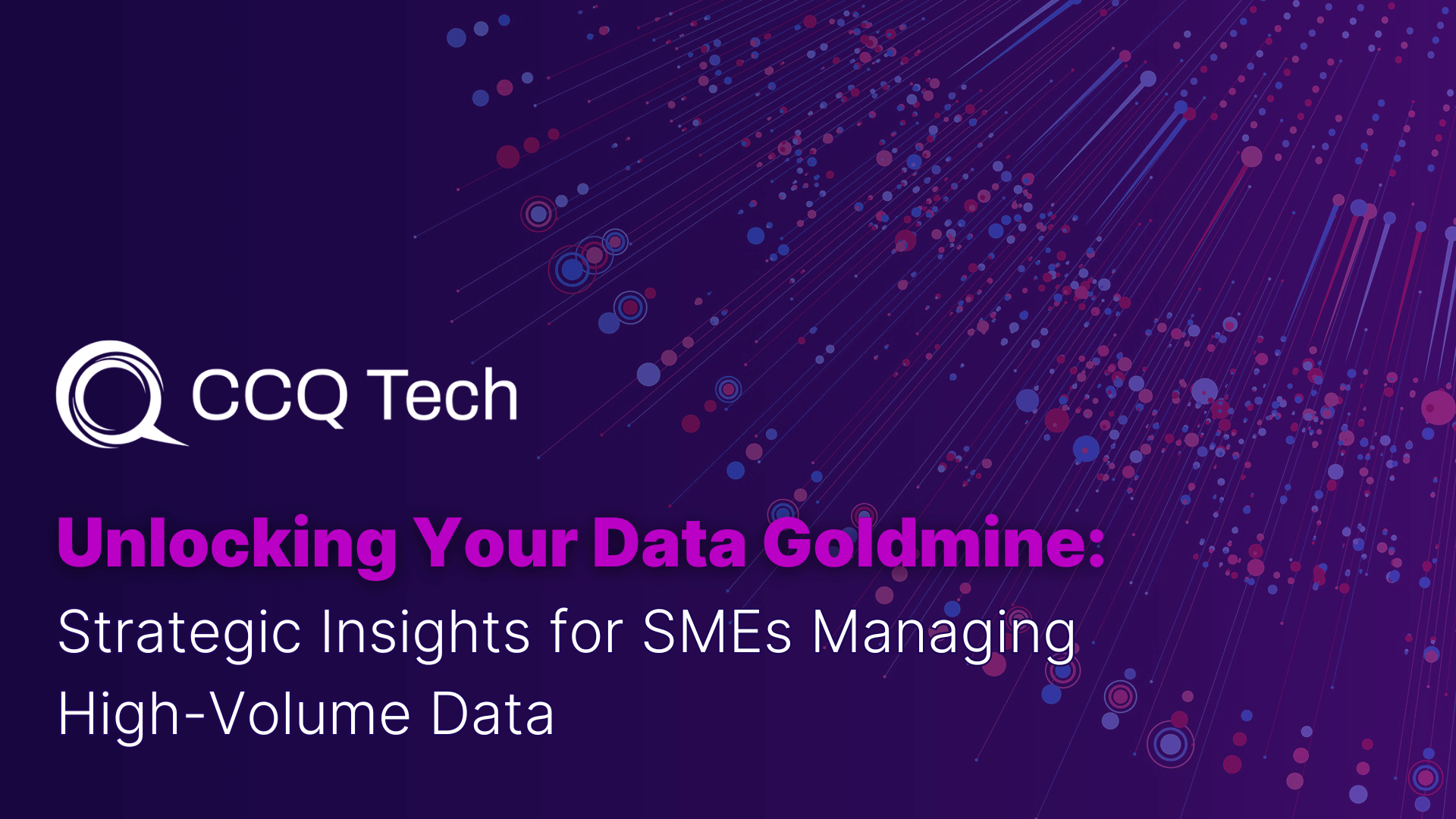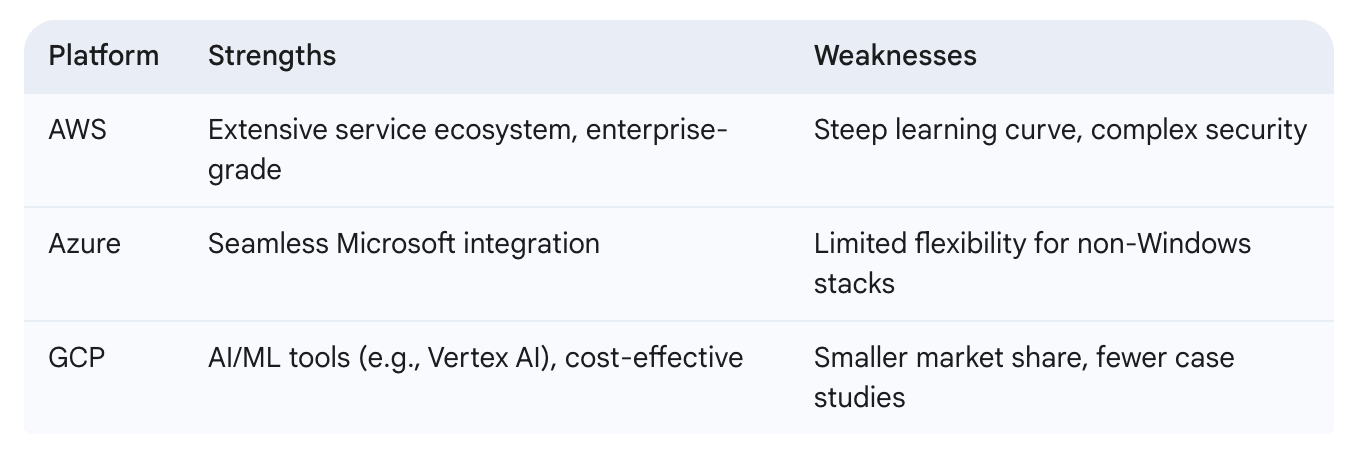
The Data Opportunity: Transforming Challenges into Growth
In the next two years, the amount of data generated by businesses will double. Is your SME ready to not just manage the volume, but able to turn it into a goldmine? During CCQ Tech’s recent Directors’ Breakfast Roundtable, ‘Executing and managing high volume data projects‘ senior leaders from sectors including property, manufacturing, education, and retail convened to dissect the complexities of managing high-volume data projects.
High-volume data projects present both immense opportunities and significant challenges for SMEs across industries. The discussions revealed common pain points, innovative strategies, and the transformative potential of new technologies. Below, we synthesise the key themes from these conversations to provide a comprehensive overview for leaders navigating this demanding landscape.
So what was the consensus of the 9x senior SME directors in the room? Strategic digital transformation is no longer optional, it’s existential. Read on for details of the topics discussed and conclusions drawn.
Breaking Down Data Silos: The Foundation of Value Creation

Data silos remain one of the biggest barriers to unlocking the true value of information within an organisation. When data is stored in isolated systems that do not communicate with one another, businesses struggle to extract meaningful insights, leading to inefficiencies and missed opportunities. A cohesive, integrated data strategy is essential for leveraging analytics, AI, and automation effectively.
A manufacturing case study demonstrated the impact of integrating data sources. By combining humidity sensor data with equipment logs, a company identified environmental factors as the cause of machine failures rather than mechanical issues. This discovery led to significant cost savings by preventing unnecessary repairs.
Actionable Insights:
- Invest in Interoperable Systems – Tools like GraphQL enable efficient cross-platform data querying, essential for real-time analytics.
- Prioritise Centralised Frameworks – Data lakes or warehouses act as single sources of truth but require robust governance to avoid inefficiencies.
- Encourage Cross-Department Collaboration – Breaking down silos is as much a cultural shift as it is a technical one.
AI Integration: Beyond Hype to Practical Utility

AI has transitioned from a cutting-edge innovation to a necessary tool for businesses looking to stay competitive. While AI-driven automation offers the potential to streamline operations, improve efficiency, and uncover insights at scale, it is crucial to differentiate between realistic applications and overhyped expectations. SMEs must identify practical, industry-specific use cases that provide tangible benefits rather than deploying AI for its own sake.
Use Cases:
- Code Generation & Review – AI tools like OpenAI Codex assist in generating and reviewing boilerplate code but require human oversight for complex tasks.
- Predictive Maintenance – AI-driven analysis of IoT sensor data improves operational efficiency in industries like manufacturing and property management.
- Marketing Automation – AI-powered platforms such as HubSpot and Salesforce enhance efficiency but require verification to ensure accuracy and reliability.
Key Considerations for SMEs:
- Start with Low-Risk Applications – Experiment with AI in areas like document summarisation before scaling to critical operations.
- Use AI for Augmentation, Not Replacement – AI should support human decision-making rather than replace expertise.
- Ensure Compliance – AI models must adhere to GDPR regulations, particularly when processing personal data.
Cloud Platforms: Choosing Between AWS, Azure, and GCP

Cloud computing is a fundamental component of high-volume data management, offering scalability, flexibility, and enhanced security. However, selecting the right cloud provider is a complex decision, as each platform comes with distinct advantages and trade-offs. The conversation on cloud platforms revolved around balancing scalability with the risk of vendor lock-in. While startups appreciated cost-saving incentives from providers like GCP, larger organisations valued the stability and extensive service ecosystems of AWS and Azure.
Comparative Insights:

Recommendations:
- Adopt Multi-Cloud Strategies– Spreading workloads across providers reduces dependency risks.
- Leverage Managed Services– Services like AWS SageMaker or Azure ML streamline AI/ML deployment.
- Secure Configurations– Regular audits prevent data breaches due to misconfigured cloud storage.
GDPR & Data Ethics: Navigating the Grey Zones

As data volumes grow, so does the complexity of compliance. Regulations like GDPR impose strict requirements on how businesses collect, process, and store personal data, with severe penalties for non-compliance. SMEs must develop data strategies that align with regulatory frameworks while maintaining operational efficiency and customer trust.
Common GDPR Pitfalls:
- Excessive Data Collection – Gathering unnecessary personal data increases compliance risks.
- Lack of Encryption – Data should be encrypted both in transit and at rest.
- Failure to Regularly Audit Data Processes – SMEs must conduct frequent reviews to ensure continued compliance.
Strategies for Compliance:
- Minimise Data Collection – Only gather what is strictly necessary.
- Use Anonymisation Techniques – Techniques like differential privacy reduce risks when training AI models.
- Conduct Regular Audits – Independent assessments help ensure regulatory adherence.
The Human Factor: Bridging Skills Gaps

Technology alone cannot solve the challenges of high-volume data projects. A well-equipped workforce with strong data literacy skills is essential to effectively manage and interpret AI-driven insights. Many non-technical teams struggle to fully grasp the implications of data analytics, and few SMEs have dedicated AI governance roles.
Solutions:
- Invest in Training Programmes – Upskilling initiatives on tools like Power BI or TensorFlow improve data literacy.
- Foster Continuous Learning – Platforms that simplify AI education help professionals stay updated on advancements.
Future Trends: What’s Next for High-Volume Data?

- Agentic AI– Autonomous AI-driven systems are expanding in areas such as logistics and warehouse management.
- Digital Twins– Simulations of physical assets are enabling more accurate predictive analytics.
- Generative AI in Marketing– While AI-generated content streamlines workflows, human creativity remains indispensable.
Conclusion: A Framework for Success

The future of high-volume data management hinges on strategic AI adoption, seamless data integration, and a relentless commitment to continuous improvement. SMEs that embrace these principles will not only navigate today’s challenges but will be primed for success in an increasingly data-driven world.
By mastering the Four Stages of High-Volume Data Projects, businesses can unlock the full potential of their data:
- Data Collection & Integration– Build a strong foundation by integrating systems and breaking down data silos, allowing for real-time insights and efficient operations.
- Data Processing & Analysis– Leverage AI and machine learning to turn large datasets into actionable insights, driving predictive maintenance and operational efficiency.
- Data-Driven Decision-Making– Empower teams with real-time data and visualisation tools, enhancing decision-making and optimising resource allocation across your organisation.
- Continuous Improvement & Adaptation– Adapt to changing conditions by embedding data-driven strategies into long-term plans and refining processes based on performance feedback.
Success hinges on a balance between AI augmentation and human oversight, cloud flexibility and compliance, and innovation and ethics. The businesses thriving in this landscape—whether in manufacturing, property, or retail—are those treating data not as a challenge to manage but as a core asset to exploit.
At CCQ Tech, we specialise in developing bespoke software, AI, and data solutions that align with your business goals, helping you unlock the true value of your data.
Ready to embark on your digital transformation journey? Get in touch to explore how we can support your success.
#DataDriven #AI #DigitalTransformation #SMEsuccess #BusinessInnovation #TechSolutions
